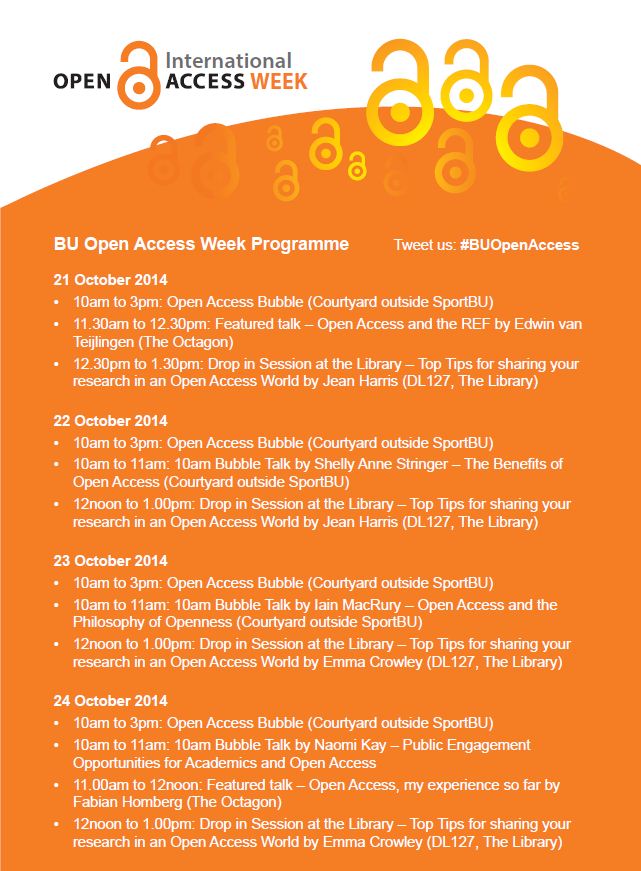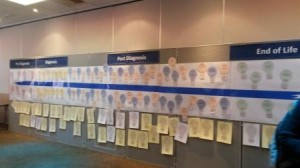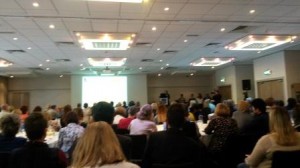
WHAT IS IT? Open access is free, unrestricted access to peer-reviewed scholarly research literature and data.
WHY DO IT? Publicly-funded research should be made freely available to the community who support it
BENEFITS
To the members of public
- Allows access to journal articles without restrictions of costs and time delay
- Reveals the latest medical discoveries and breakthroughs (which may save your life)
- Gives crucial information freely to medical professionals, students and nurses in developing countries so saving thousands of lives
- Enriches the educational experience of millions of students and teachers around the world (who otherwise cannot afford subscriptions to prestigious journals)
To the academics
- Removes barriers to networking and sharing research
- Increases exposure and use of publications
- Facilitates interdisciplinary collaboration and new discoveries
- Increase usage, citations and impact
Please visit the links below to hear from our academics about some of the Open Access research that is available to you:
- Dr. Jonathan Williams, Lecturer In Physiotherapy (Link to article)
- Dr. Zulfiqar Khan, Associate Professor (Link to article)
- Dr. Anita Diaz, Lecturer
- Professor Edwin van Teijlingen, Professor of Maternal & Perinatal Health
- Dr. Matthew Frew, Senior Lecturer in Event Management
- Professor XiaoSong Yang, Senior Lecturer in Computer Animation (Link to article)
 Get involved. Participating in Open Access Week can be as simple or involved as you like. It can also be a chance to let your imagination have full rein and come up with something more ambitious, wacky, fun.
Get involved. Participating in Open Access Week can be as simple or involved as you like. It can also be a chance to let your imagination have full rein and come up with something more ambitious, wacky, fun.
 Celebrate Open Access at BU and join us in these exciting events. No need to register, just turn up.
Celebrate Open Access at BU and join us in these exciting events. No need to register, just turn up. For more information about
For more information about
- The International Open Access Week and how you can get involved or help out;
- Open access in general;
- how to publish your article open access
Please get in touch with Pengpeng Hatch (pphatch@bournemouth.ac.uk, tel: 01202 963154).
 All logo and colour scheme attributed to : www.openaccessweek.org
All logo and colour scheme attributed to : www.openaccessweek.org





























 From Sustainable Research to Sustainable Research Lives: Reflections from the SPROUT Network Event
From Sustainable Research to Sustainable Research Lives: Reflections from the SPROUT Network Event REF Code of Practice consultation is open!
REF Code of Practice consultation is open! BU Leads AI-Driven Work Package in EU Horizon SUSHEAS Project
BU Leads AI-Driven Work Package in EU Horizon SUSHEAS Project ECR Funding Open Call: Research Culture & Community Grant – Apply now
ECR Funding Open Call: Research Culture & Community Grant – Apply now ECR Funding Open Call: Research Culture & Community Grant – Application Deadline Friday 12 December
ECR Funding Open Call: Research Culture & Community Grant – Application Deadline Friday 12 December MSCA Postdoctoral Fellowships 2025 Call
MSCA Postdoctoral Fellowships 2025 Call ERC Advanced Grant 2025 Webinar
ERC Advanced Grant 2025 Webinar Update on UKRO services
Update on UKRO services European research project exploring use of ‘virtual twins’ to better manage metabolic associated fatty liver disease
European research project exploring use of ‘virtual twins’ to better manage metabolic associated fatty liver disease